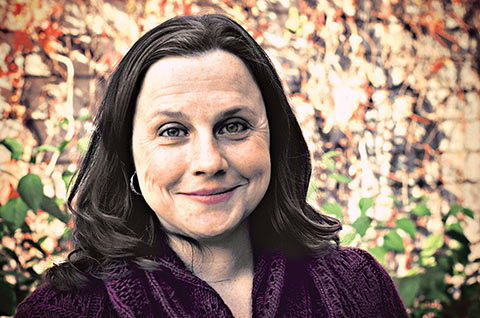I began my creative writing MA at U of T in 2005, which was a year in which blogs were poised to take over the world. Bloggers were getting six-figure book deals and breaking news stories. Reporters for newspapers as illustrious as the New York Times were being groomed as bloggers whether they wanted to be or not.
My own blog, in this light, was a humble thing; its audience, however passionate, quite limited. I’d been writing it for five years, its focus shifting from post-teenage angst to travel and genuine engagement with the world. But it was while I was in graduate school that I really found my blogging stride, inspired by my days immersed in Virginia Woolf, notions of haunting in Canadian fiction, Annie Dillard’s oeuvre and Heather Murray’s work on reading culture. Blogging about books and reading was intensely rewarding, and while it didn’t make me an Internet sensation, it delivered enormous joy and satisfaction – something I would come to be grateful for.
I finished my MA in 2007 with a manuscript for a novel that nobody wanted to publish – for good reason; it was boring. I started a job that delivered a good wage and benefits, but little in the way of inspiration. When I contemplated my literary future, things didn’t seem so optimistic.
“Of course, the best antidote to the disappointment of the literary life is to read,” advises author Caroline Adderson. And so I read, and I also blogged about reading, and my blog – rather than that long since abandoned novel – would turn out to be the foundation of my own literary life. Which is fortunate in retrospect, because what a poor foundation that novel would have been.
So mine is a story of eventual triumph, although this is not the point at which I receive a six-figure book deal or break a major news story, or am profiled in the New Yorker as a blogger-about-town. None of these things ever happened to me, and by this time it was 2009, the Western economy had collapsed and these things were happening to hardly anybody.
What did happen, however, is that people were paying attention to my book reviews, and I began receiving opportunities to write for newspapers and magazines. I was also becoming a better and more efficient writer with every post I published, and making connections with people who gave me further writing opportunities. I had an established online platform, which, these days, is considered essential for any literary career – although that the platform exists for its own sake rather than to serve my aspirations is a huge part of the reason it works so well.
My blog is still a humble thing, though I have come to regard humbleness as intrinsic to the form. More importantly, however, my blog is also a body of work that I’m proud of. While I cringe at some of the archives, I appreciate its record of my development as a thinker and a writer. Blogging has helped me to puzzle my way through motherhood, the writing life and all the usual challenges of being a human.
Blogging has become an essential part of my process, process being the point: blogging is ever a work-in-progress just like life is. It’s about showing one’s work, being open to and curious about the world, and it makes my life better and richer in so many ways. If it didn’t, I would have quit a long time ago. And so “blogger” – a term as widely maligned as it is lacking in euphony – is also a label I embrace. It’s one I won’t be shrugging off either, even as I’m on the cusp of becoming a novelist, finally. Because yes, Mitzi Bytes, my debut novel, is forthcoming in 2017. And guess what? It’s about the secret life of a blogger.
Kerry Clare (BA 2002 Victoria, MA 2007) teaches The Art of Blogging at the University of Toronto School of Continuing Studies. She continues to blog about books and reading at Pickle Me This.





